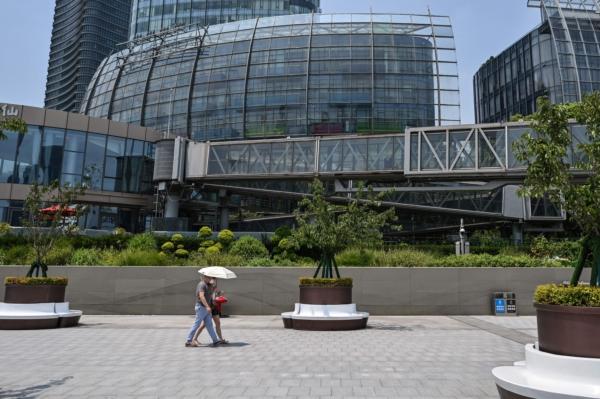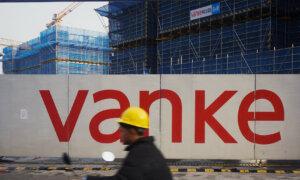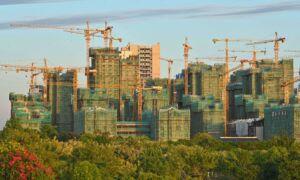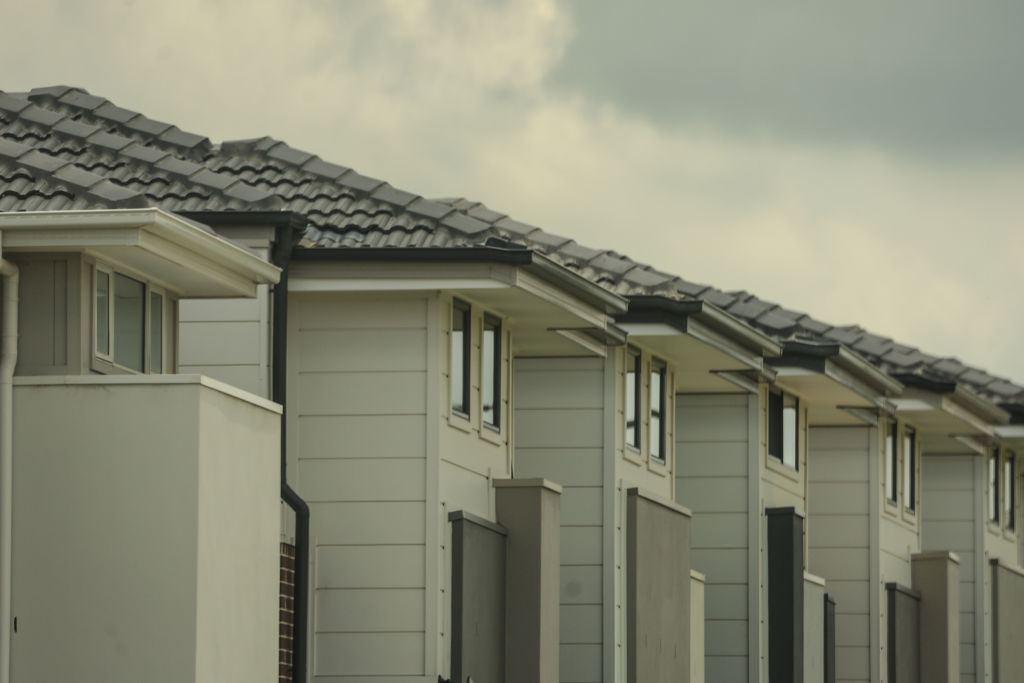Despite its superficial attractiveness, the ‘old for new’ housing policy can hardly save China’s property market, says China economist Davy Jun Huang.
News Analysis
Shanghai, a metropolis in China that used to boast skyrocketing property prices, has launched a “old for new” housing policy, following more than 30 Chinese cities who have adopted similar measures in an attempt to save the nation’s failing property market. The policy, however, will not do much good given people’s declining purchasing power and China’s high real estate taxes, according to an economist.
Based on reports in Chinese state media, Shanghai’s “old for new” program primarily targets those planning to sell their homes and purchase newly-built ones.
Under the policy, buyers intending to purchase new homes first express their intention with real estate developers and then have their homes promoted for sale by real estate agencies. After selling their “old” homes, they proceed with the agreed-upon new home transactions.
Over 20 real estate development companies and close to ten real estate agencies have signed up as the first participants in the initiative. More than 30 development projects are distributed in districts including Jiading, Songjiang, Qingpu, Fengxian, and the Lingang New Area in the Shanghai Free Trade Zone.
Real estate developers also promised that if client’s homes are not sold successfully within the agreed period, buyers can opt for an unconditional refund on the new home. Additionally, real estate agencies pledged to “promote citywide and prioritize the sale” of pre-owned homes in line with the policy’s goal of pushing up the rate of home sales.
‘Old for New’ in Over 30 Chinese Cities
The “old for new” policy has been taken up by over 30 city governments since 2023, according to research organization China Index Academy that monitors China’s property management industry.
“‘Old for new’ is equivalent to selling the old house to the government, which gives you an assessed price,” Chen Wei (pseudonym), a real estate intermediary salesperson in Zhengzhou City, the capital of the central Henan Province, told The Epoch Times on May 5.
“However, the money is not paid directly to you. You’re required to purchase a new house within the main urban area [with the money]. If the assessed value of your old house is 1 million [yuan], then the price of the new house you purchase cannot be lower than 1 million, because the government will not give change to you.”
Mr. Chen noted that under the “old for new” policy, the authorities are not really addressing the challenges faced by those Chinese who have been unable to sell their home; they are only intent on trying to revive the sluggish property market.
“The government is not providing a safety net for the people, nor is it taking all unsold houses. The government is not a charity organization, and local finances do not have enough money to do these things,” he said.
The participating Chinese cities have adopted two main operational modes for their “old for new” housing policies, he said.
One mode is similar to the approach in Shenzhen, where real estate companies and intermediary agencies collaborate to prioritize the sale of pre-owned homes. Buyers subscribe to new housing units from developers, and then engage real estate agencies to sell their pre-owned homes. If the homes are sold within a certain period, buyers proceed with the new home purchase; otherwise, the subscription funds for the new home are refunded.
The second mode involves developers and state-owned platforms acquiring the pre-owned homes. In this mode, buyers willing to sell use the proceeds of their pre-owned homes to purchase new builds from approved projects. In Zhengzhou City, for instance, acquisition entities formulate and release acquisition plans based on demand for guaranteed rental housing or affordable housing in the city’s eight districts; the acquired pre-owned homes are then purchased to increase the supply of guaranteed rental housing.
Mr. Chen said that Zhengzhou rolled out a pilot program for its policy at the end of April, and outlined four requirements for eligible homeowners looking to sell: that pre-owned homes do not exceed 15 years in age, do not exceed 120 square meters in size, have property certificates on hand, and are located within the third ring road in Jinshui District or the Zhengdong New District. These areas are the best-developed in the city, serviced by sufficient transportation facilities.
Mr. Chen also explained that the houses acquired are to be transformed by the housing management department into affordable housing, so excessively large or small houses are also unsuitable.
 Removed company signage (top L) is seen in a general view of the unoccupied Evergrande Centre building in Shanghai on July 27, 2022. (Hector Retamal /AFP via Getty Images)
Removed company signage (top L) is seen in a general view of the unoccupied Evergrande Centre building in Shanghai on July 27, 2022. (Hector Retamal /AFP via Getty Images)Mr. Chen stated that only when all four requirements are met can buyers register and apply on the Shanghai government platform. The platform then contacts buyers and arranges appointments for assessing the houses. During the assessment, the platform combines evaluation reports provided by banks or third-party assessment agencies to determine the valuation of the houses. If buyers agree with the valuation, they can proceed to the next step; otherwise, the “old for new” process ends there.
Davy Jun Huang, a China economist and columnist with China’s state media CNTV who is now based in the United States, believes that despite its superficial attractiveness, the “old for new” housing policy can hardly have any substantial impact on reviving China’s property market.
The core issue facing the current market is the decline in people’s purchasing power, and the excessive tax burden imposed by Chinese authorities on the real estate sector to support other government expenses diminishes the effectiveness of the policy, he told The Epoch Times on May 5.
At present, “old for new” is essentially an idealized concept, with limited actual effectiveness, he said. It appears more like a slogan rather than a significant measure that can affect the market, especially considering that the projects currently involved are located in areas where property transactions are not very active, with prices that are considered inflated and lingering pessimism for sales of pre-owned homes.
China’s Home Listings Rise as Prices Fall
Liang Botao, general manager of the China Index Academy’s Henan company, told the Chinese media that the predicament facing the real estate market is still persisting, with a lack of public willingness to buy homes.
The number of pre-owned homes listed in China has continued to rise since 2023. As of March, more than ten cities—including Beijing, Hefei, Hangzhou, and Guangzhou—had pre-owned housing listings exceeding 100,000 units. The number in other cities like Chongqing, Chengdu, Suzhou, Nanjing, and Tianjin surpassed 150,000 units, with Chongqing and Chengdu exceeding 200,000 units.
As the number of listings of pre-owned homes continues to rise in many places, the sales volume of these homes has only moved with continuous price reductions in the market.
Furthermore, data shows that in January, the inventory-to-sales ratio of 100 cities in China reached 22.9 months—the highest level since data monitoring began in 2010. Specifically, the inventory-to-sales ratio for new housing in first-tier cities was 16.6 months, followed by 19.6 months in second-tier cities. Sales times for homes reached as long as 30.2 months for third and fourth-tier cities.
Xin Ning contributed to this report.














 English (US) ·
English (US) ·  Turkish (TR) ·
Turkish (TR) ·